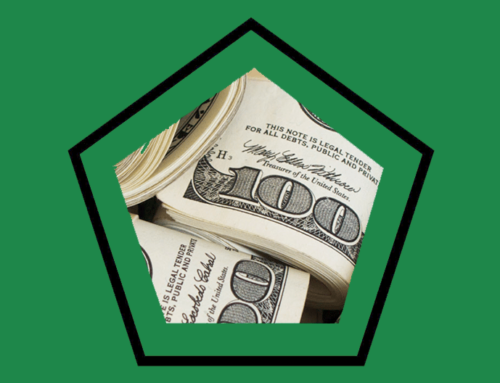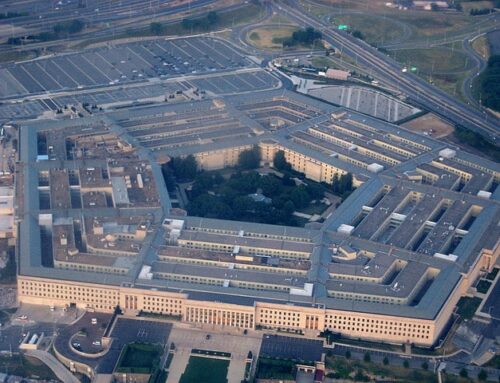Following the airline industry's lead, insurance executives have been lobbying Congress for terrorism insurance legislation that will benefit them greatly by making taxpayers act as a backstop for financial risk of future terrorism-related claims.
After Sept. 11, the insurance industry claimed that the entire U.S. economy would suffer after major reinsurance firms, which insure the insurers themselves, refused to renew protection against terrorism. In the absence of terrorism coverage, insurance executives claimed that banks would refuse to finance new construction, especially for major projects like new power plants or office buildings: no terrorism insurance plus no bank loans equals no economic growth.
Many business analysts jumped on the bandwagon and supported the claim that the only way to prevent the economy from coming to a standstill was for the federal government to get into the reinsurance business. Insurance executives told Congress that the government needed to act before December 31, 2001, when about 70% of U.S. commercial policies containing terrorism insurance clauses were set to expire.1 They claimed that lenders and insurance companies would renew terrorism clauses in insurance contracts, preventing an economic crisis, if and only if they knew that the government would step in when necessary.
Months after December 31, 2001, a bill was finally passed by both houses of Congress. In the meantime, however, the majority of insurance contracts with terrorism clauses had already expired and yet none of the industry's doomsday predictions of economic crisis came true. Banks have continued to finance the vast majority of projects without terrorism insurance and insurance firms have bounced back from the single most costly event in insurance history thanks to an influx of money from higher premiums and new capital.2
In fact, the insurance industry was well on its way to recovery almost immediately after Sept. 11. Marsh & McLennan Cos., the world's largest insurance brokerage, started planning the formation of a new subsidiary to sell corporate insurance with high rates just days after the World Trade Center bombing.3 At least five other new companies were eventually created by other firms that wanted to seize what they saw as a new opportunity to make money.
The insurance industry has always rebounded quickly after major disasters because the fear of another disaster increases demand for insurance, which raises its price. After 1992's Hurricane Andrew devastated southern Florida, hurricane insurance premiums immediately shot up, quickly refilling insurance companies' cash reserves. Likewise, by November 2001, insurers had raised prices by 100% or more on some of their commercial and industrial policies and stock prices for the insurance sector had increased by 7%.4
Insurance companies managed to get things back on track without any government support. Because traditional terrorism insurance was too unpredictable to price accurately, alternatives quickly developed to replace it, including self-insurance, layering, creation of different subsidiaries, and securitization of risk.5 Unlike the airline bailout, where the government acted quickly, terrorism insurance legislation was held up in Congress and as a result, the undisturbed insurance market adjusted on its own.
Not until June 17, 2002, did the Senate pass their terrorism insurance bill, S. 2600. The House had already passed their version, H.R. 3210, months earlier. S. 2600 stipulated that taxpayer money would reimburse insurers in part, according to a formula based on insurance premiums, until industry-wide losses reached $10 billion. At that point, taxpayers would then pay 90% of all remaining losses.6 Although the Senate bill differs in implementation from H.R. 3210, which forces taxpayers to pay 90% of future terrorism claims between $1 billion and $20 billion, the outcome is the same: taxpayers bear the brunt of the financial burden.7
Consider this: claims connected to Sept. 11 have cost the insurance industry about $40 billion. If either the House or Senate version of the terrorism insurance bill had been in effect at that time, taxpayers would have had to pay around $30 billion of that amount.
Nine months after September 11, it is clear that the only purpose of an insurance bailout would be to help profitable insurance corporations profit even more from tragedy. In the absence of future terrorist attacks, insurance companies benefit because they would keep all of the high premiums they charge for terrorism insurance as part of their profit.
________________________________________
1. Fed Insurance Plan Weighed. CNN Money: 10/16/01.
2. Insurance industry thriving post-9/11. MSNBC: 5/03/02.
3. Insurance Industry Stands to Benefit From Changes Wrought by Sept. 11. Wall Street Journal: 11/15/01.
4. Ibid.
5. Statement of J. Robert Hunter, Consumer Federation of America Director of Insurance, before the Oversight and Investigations Subcommittee of the House Financial Services Committee on the Terrorism Insurance Market since September 11th. 2/27/02
6. “Senate Inches Toward Passage of Acceptable Terrorism Reinsurance Bill.” Insurance Chronicle: 6/17/02.
7. Bush Prods Senate to Move on Terrorism Insurance Bill. Engineering News-Record: 4/09/02.











Get Social